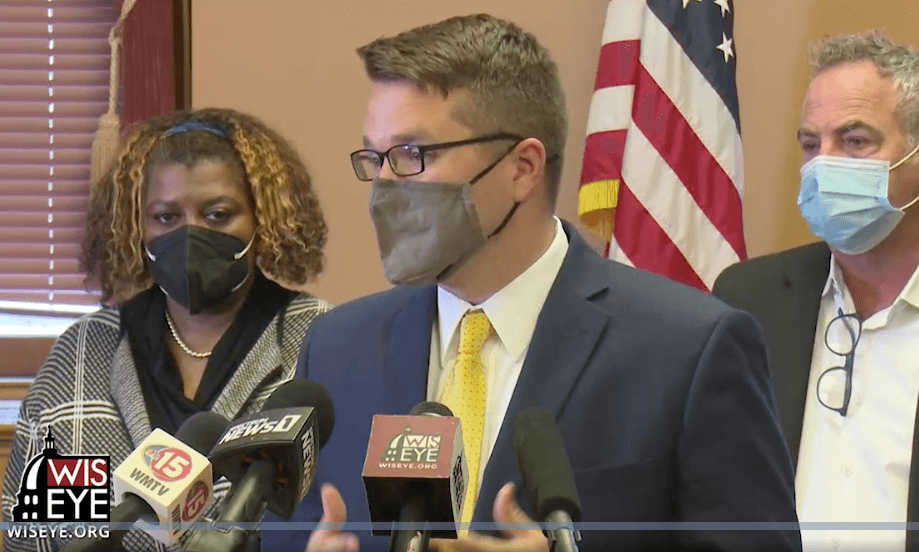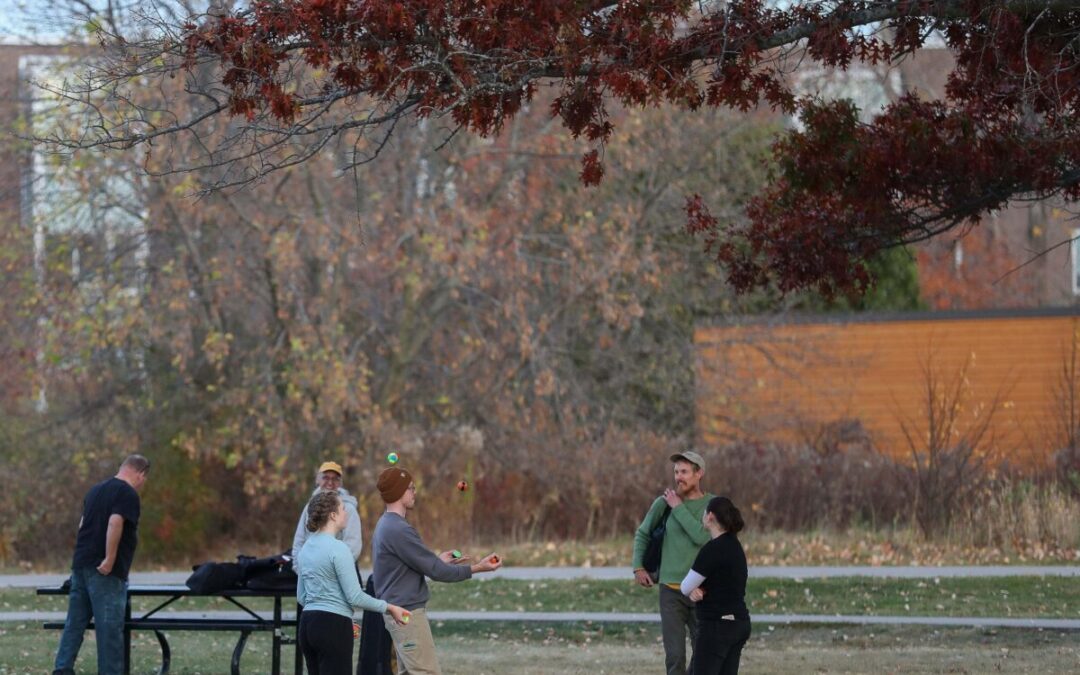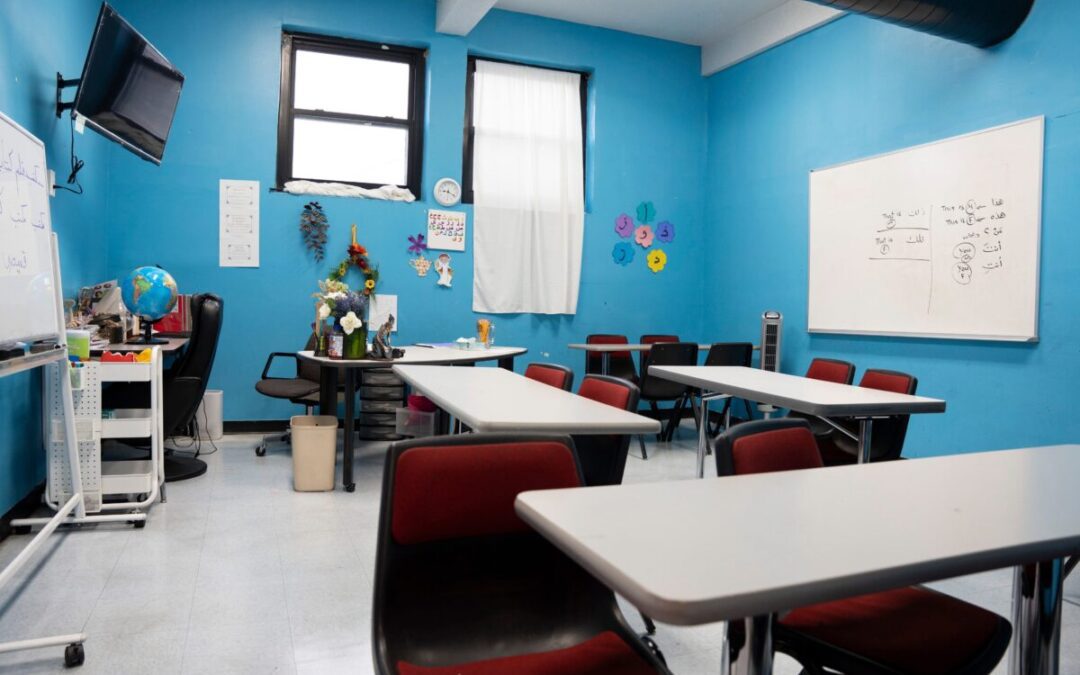
#image_title
Legislators had been warned earlier that the aid from the American Rescue Plan is a supplement for struggling schools, not a substitute for state support.
Republican legislators on the Joint Finance Committee tried Thursday to use the federal COVID-19 relief funds targeted for Wisconsin school districts as justification to cut requests for additional state funding, but doing so may keep that extra federal help from arriving at all.
The Republicans’ amendments to the budget bill would provide less than 10% of what Gov. Tony Evers had proposed, and would represent a less-than 1% increase in K-12 spending from the current budget. They justified it by pointing to the $2.6 billion Wisconsin schools are set to receive from the federal government.
However, the Legislative Fiscal Bureau informed legislators that the federal funds come with a requirement that the state maintain its K-12 spending at 35% (and higher education at 9%) of the total state budget. To shortchange education could mean the loss of $1.5 billion in federal funds from the American Rescue Plan (ARP).
Joint Finance Co-chair Rep. Mark Born (R-Beaver Dam) told WisPolitics that he and his colleagues had only recently learned about the requirement (although the Milwaukee Journal Sentinel reported they’ve known for at least a month) and he blamed Evers for “accepting funds that lock the legislative branch into funding criteria without any consultation before accepting the money.”
RELATED: Wisconsin Could Expand Healthcare and Get $1.6 Billion From the Feds. GOP Says ‘No.’
Sen. Jon Erpenbach (D-West Point) pointed out that the governor “has nothing to do with okaying this federal funding.”
“This is the federal government saying to the public school districts, higher education and private schools, ‘Here, this is your money,’” Erpenbach said.
And the Republicans’ plan could put that federal funding at risk.
“It’s disingenuous to talk about all the federal money flowing into schools when this motion puts that in jeopardy,” Erpenbach said. “Saying no to [Evers’ education budget] is kissing away almost $2 billion of federal funding.”
The Republican proposal would also shift $350 million proposed for education into the state’s “rainy day” fund, which is projected to reach $1 billion by the end of the fiscal year. The state would need approximately $200 million in additional funding for schools to ensure they would receive the federal ARP funding.
In a pre-hearing conference Born said the money going to the rainy day fund are being set aside for future use, but they do not anticipate using them over the coming biennium.
“There is no guarantee this money will go to our schools,” said Rep. Greta Neubauer (D-Racine)
Neubauer pointed out many of her Republican colleagues ran and were elected on the promise of funding public schools.
“I guess their desire to stick it to [Evers] is greater than the desire to keep their promises,” said Neubauer.
Creating instability
Another motion that raised Democrats’ ire was tying some state aid funds to in-person student attendance, which has been a Republican talking point throughout the pandemic. In February, Joint Finance Republicans voted to allocate the 10% of federal education funds that were discretionary to in-person instruction.
Rep. Evan Goyke (D-Milwaukee) pointed out that the decision to switch to virtual learning, “was not a political decision” but was made with the health and safety of students, teachers, and staff in mind.
Republicans justified tying funds to in-person instruction by using studies showing that students learn and retain better in person as an indictment against schools that used virtual instruction. But there has also been case after case in Wisconsin of schools reopening and then having to close because of an outbreak, even as more people got vaccinated. Educators have pointed out that this cycle can be a greater disruption than consistent virtual learning.
“Thank God [the schools] were closed because they could not safely and adequately reopen,” Sen LaTonya Johnson (D-Milwaukee) said.
Republicans argued Milwaukee Public Schools wouldn’t need those funds because it received so much Title I funding. Title I is funding required by federal law to help school districts that serve communities with children who are low-income, are disabled or who are English language learners.
“Shame on you for being envious of Title 1 funds because they serve low income kids,” Johnson said. “I have never seen people so envious of the poor except when it comes to Title I funding. Really? Because I bet those poor families would trade with you in a second.”
Moreover, tying funds to in-person learning means that schools won’t know how much they are receiving until later this summer, maybe not even until the upcoming school year.
“[Districts] can handle good, they can handle bad, but what they can’t handle is uncertainty,” Erpenbach said.
And for all the Republicans’ stated concerns about students falling behind because of virtual learning, Neubauer said she was confused why her GOP colleagues wanted to cut funding for the schools that will need it the most to help kids catch up.
“We’re hearing a lot about concern for these students but this is a plan that punishes them,” Neubauer said.
The committee also drastically reduced the funding increase for the University of Wisconsin System from Evers’ proposed $190 million to $8.25 million. But their proposal would allow the UW Board of Regents to raise tuition, which has been frozen since 2013.
The motions passed along party lines on 12-4 votes.

Virtual learning growing in Wisconsin, school leaders say
After eight hours of training at the Milwaukee Ballet Academy, Cecilia Smucker logs onto her laptop for four hours of online learning through...

How many students are going to each UW school in fall 2025?
Enrollment at Wisconsin's public universities remained stable from last year despite a challenging political landscape and an 8% drop in...

Wisconsin public school enrollment declines continue as vouchers grow, new data show
Enrollment in Wisconsin's public school districts has continued to fall, while other types of schools are gaining students, according to the state's...

Trump’s spending cuts hit program for deaf-blind kids in Wisconsin
A program around since the 1960s helps deaf-blind children in Wisconsin so they can go to school and communicate with others, but President Trump’s...




